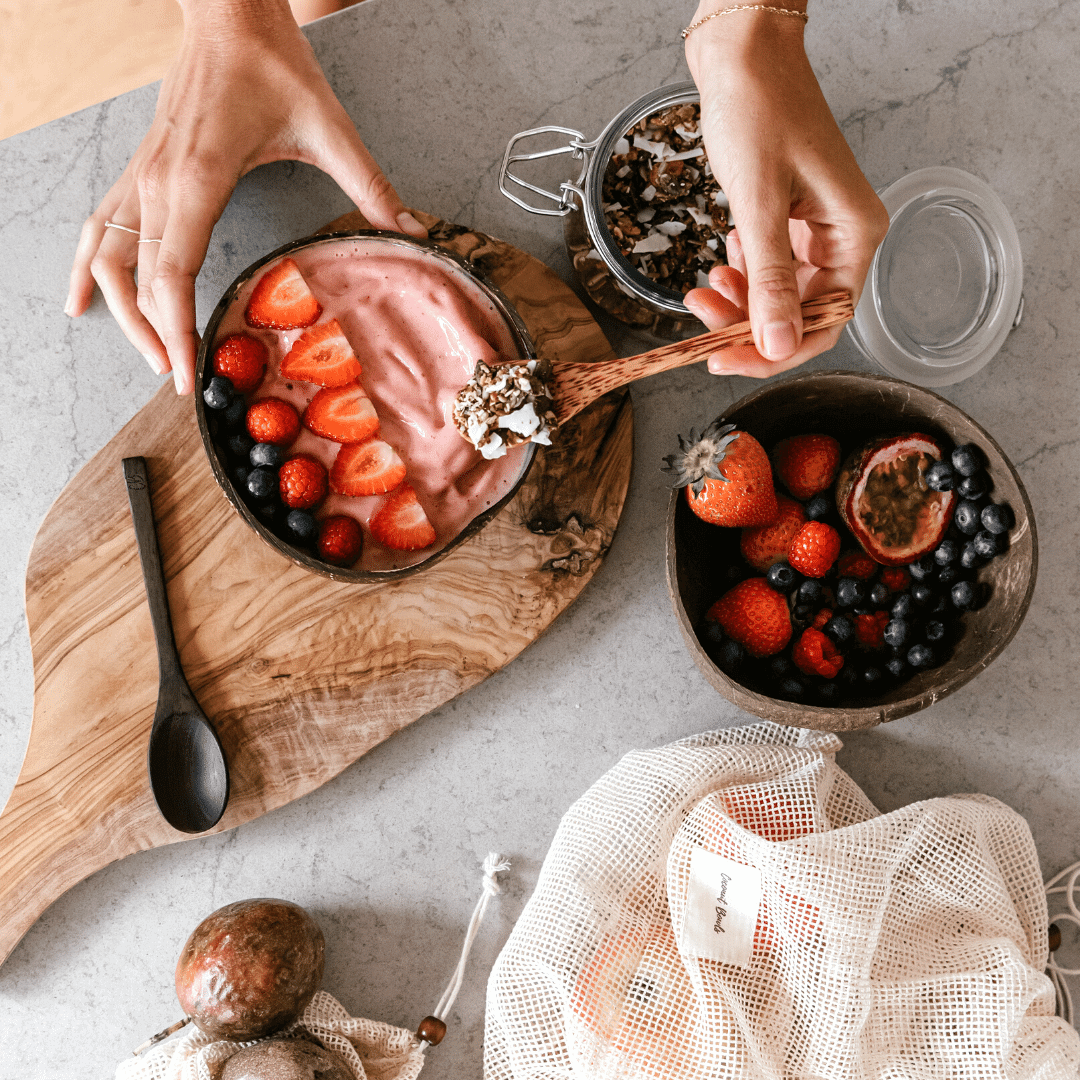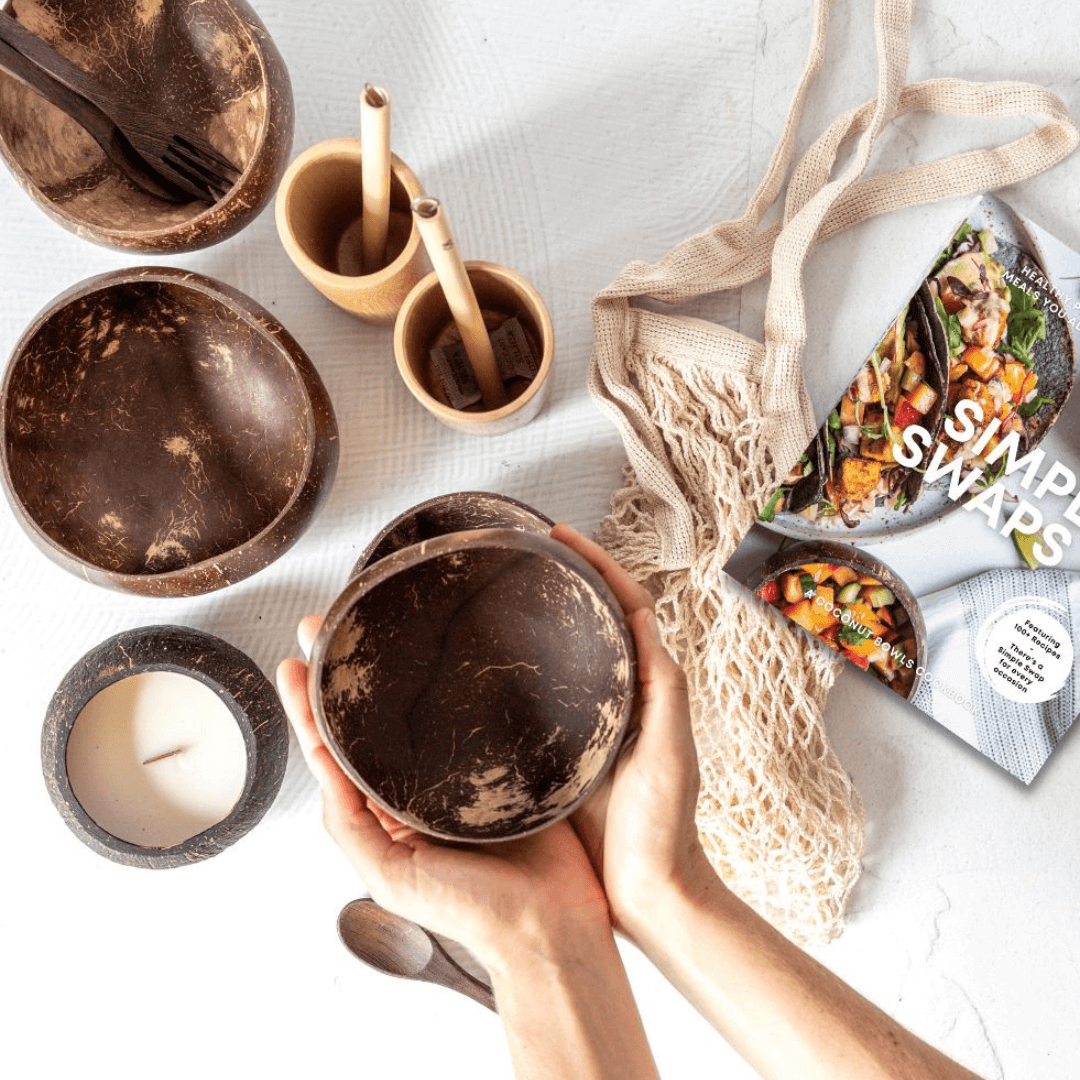Looking to reduce your carbon footprint and live a more sustainable lifestyle? Start with your kitchen!
With the rise of single-use plastics and plastic packaging, plastic waste has become a major environmental issue affecting our planet and its inhabitants. By making small changes in your daily life, such as using reusable utensils and sustainable alternatives to plastic packaging, you can make a significant impact.
The kitchen is one of the biggest contributors to plastic waste, but with some simple changes, you can reduce your plastic footprint and help protect the planet. In this blog post, we'll explore some practical tips and sustainable alternatives to help you reduce plastic waste in your kitchen.

1. Choose Reusable Products
One of the most effective ways to reduce plastic waste in your kitchen is to switch to reusable products. Replace single-use plastics like plastic bags, water bottles, and food containers with reusable alternatives made from sustainable materials like glass, stainless steel, wood or bamboo. Reusable products can be used over and over again, which helps reduce the amount of plastic waste produced.
At Coconut Bowls, we offer a range of sustainable and eco-friendly products that are perfect for reducing plastic waste in your kitchen. Our Coconut Bowls (⭐⭐⭐⭐⭐ 961 Reviews) and Bamboo Straws (⭐⭐⭐⭐⭐ 226 Reviews) are made from natural materials and can be used again and again. Our bamboo straws are particularly popular with our customers, like Andrea, who says "I'm coconuts for these straws! I love these...everyone needs these to cut down on plastic waste and these straws are a great place to start."

2. Choose Sustainable Packaging
When you're shopping for groceries, choose products with sustainable packaging. Look for products that are packaged in materials like glass, metal, or paper, and avoid products that are packaged in plastic. By choosing sustainable packaging, you can help reduce the amount of plastic waste produced and support companies that are committed to sustainability.
At Coconut Bowls, we're committed to using sustainable packaging for our products. We've partnered with No Issue to help create eco-friendly and sustainable materials for our packaging, and we're always looking for ways to reduce our environmental impact.

3. Compost Food Waste
Food waste is a major contributor to greenhouse gas emissions, but by composting your food waste, you can help reduce your carbon footprint and create nutrient-rich soil for your garden. Composting is easy to do and can be done in a variety of ways, from backyard composting to vermicomposting (using worms to break down food waste) - check out SubPod our composting friends from Byron Bay.
At Coconut Bowls, we're committed to sustainability, which is why we offer a range of compostable products, including our Coconut Bowls and utensils. Our Coconut Bowls are made from natural materials that can be composted after use, which means they won't end up in a landfill or contribute to plastic waste.

4. Buy in Bulk
Buying in bulk is a great way to reduce plastic waste in your kitchen. By buying in bulk, you can avoid the plastic packaging that comes with individual products, which can help reduce the amount of plastic waste you produce. Look for stores that offer bulk products like grains, nuts, and spices, and bring your own reusable containers or eco-friendly bags like our Taste Without Waste collection (⭐⭐⭐⭐⭐ 35 Reviews) to fill up.
By taking these simple steps, you can reduce plastic waste in your kitchen and make a positive impact on the environment. As Jake McKeon, the founder of Coconut Bowls, says, "Reducing plastic in the kitchen was one of the first steps I took when adopting a sustainable lifestyle. It's an easy place to start, and by using things like Coconut Bowls and Bamboo Straws every day, it can make sustainable living fun." So why not give it a try? Choose reusable products, compost your food waste, and buy in bulk to reduce your plastic consumption and create a more sustainable kitchen.







